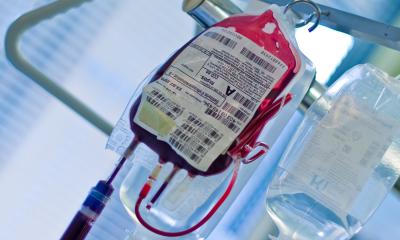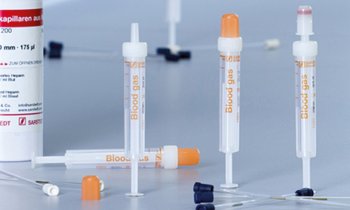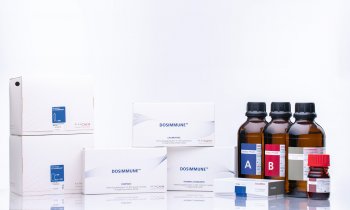News • Detailed map of immune cells
The Human Blood Atlas: a mighty new tool to fight deadly diseases
A first-ever map of the human body’s immune cells has been created by scientists at SciLifeLab, providing medical research with a detailed description of the proteins in human blood. The open-access database offers medical researchers an unprecedented resource in the search for treatments for diseases.
Published in the journal Science, the Blood Atlas resource is the latest database to be released by the Human Protein Atlas program, which is based at the Science for Life Laboratory (SciLifeLab), a joint research center aligned with KTH Royal Institute of Technology, Karolinska Institutet, Stockholm University and Uppsala University.
Image source: Human Protein Atlas
KTH Professor Mathias Uhlén, director of the Human Protein Atlas, says that this open-access resource will facilitate future efforts to combat disease. “The immune cells are involved in fighting all human diseases – in particular cancer, infectious diseases and autoimmune diseases,” Uhlén says. “With a comprehensive map identifying all proteins in these blood cells, researchers around the world will be able to deepen their understanding of human biology and develop new, more effective therapies targeting these diseases.”
The Blood Atlas provides a detailed view of the proteins in individual blood cells in relationship to the presence of these proteins in the other parts of the body, determining which proteins are unique to different types of blood cells. A thorough analysis of blood cell RNA expression profiles has enabled the identification of approximately 1,500 genes with elevated expression in various immune cells, confirming well-known immune proteins, but also identifying new targets for in-depth analysis. Uhlén says the corresponding proteins are interesting to study further in order to explore the biological functions linked to the function of each blood cell type.
This resource is very important for anyone interested in understanding the function of individual genes, for example in patients with primary immune deficiency diseases
Petter Brodin
To illustrate the usefulness of this resource in understanding the function of specific genes across cells and tissues, the paper describes the cellular distribution of genes known to cause primary immunodeficiencies. Co-author Petter Brodin, a researcher in the Department of Women’s and Children’s Health at Karolinska Institutet and SciLifeLab says: “This resource is very important for anyone interested in understanding the function of individual genes, for example in patients with primary immune deficiency diseases.”
The results are presented in an updated version 19 of the Human Protein Atlas, providing an open-access knowledge resource to allow exploration of the expression profiles across human immune cell populations and all major tissues and organs. The Blood Atlas also contains information about the proteins actively secreted by various cells into human blood as reported recently by Uhlén and research colleagues in Science Signaling.
Source: KTH Royal Institute of Technology Stockholm
23.12.2019











